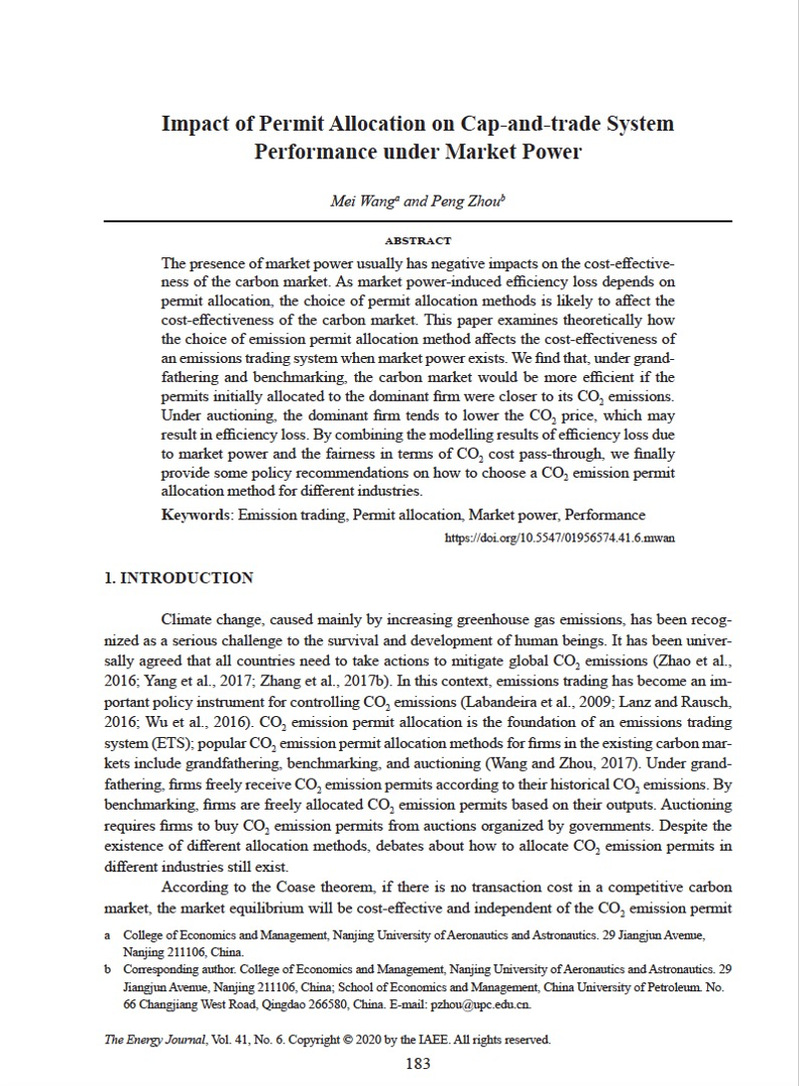1. 摘要
The presence of market power usually has negative impacts on the cost-effectiveness of the carbon market. As market power-induced efficiency loss depends on permit allocation, the choice of permit allocation methods is likely to affect the cost-effectiveness of the carbon market. This paper examines theoretically how the choice of emission permit allocation method affects the cost-effectiveness of an emissions trading system when market power exists. We find that, under grandfathering and benchmarking, the carbon market would be more efficient if the permits initially allocated to the dominant firm were closer to its CO2 emissions. Under auctioning, the dominant firm tends to lower the CO2 price, which may result in efficiency loss. By combining the modelling results of efficiency loss due to market power and the fairness in terms of CO2 cost pass-through, we finally provide some policy recommendations on how to choose a CO2 emission permit allocation method for different industries.
2. 主要创新点
The CO2 emission permit allocation method plays an important role in the cost-effectiveness of ETS when market power exists in the carbon market.
The more the initial emission permit allocation of a dominant firm deviates from its emissions, the greater the efficiency loss in the carbon market.
We suggest that benchmarking be used for the power sector.
3. 发表期刊
The Energy Journal

(首页截图)
全文链接:http://www.iaee.org/energyjournal/article/3584



